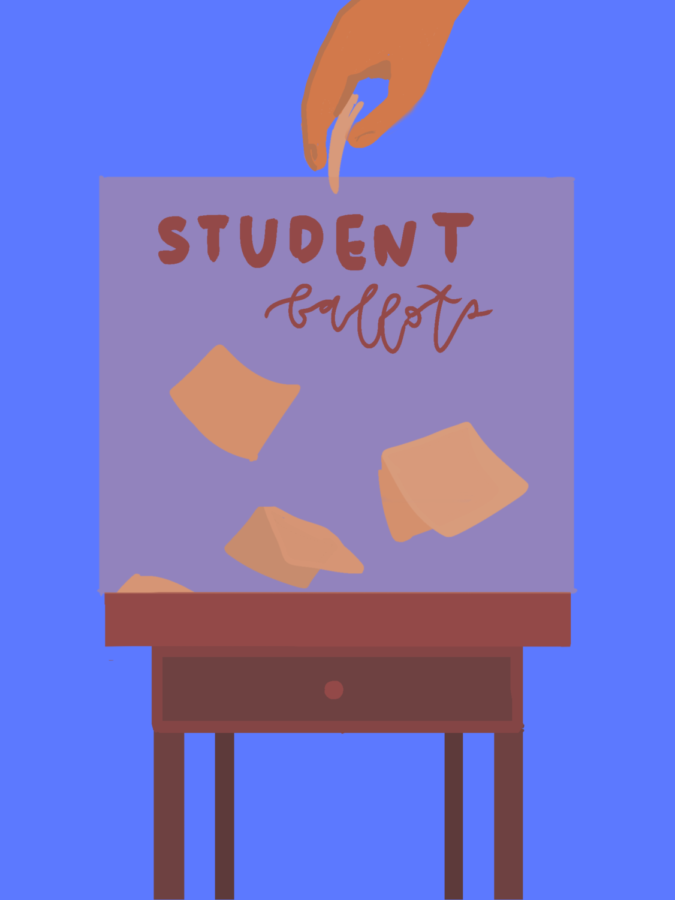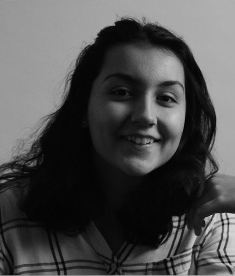AP Government classes emphasize political engagement
Our generation has lived through what are undoubtedly some of the most bizarre elections in American history. We’ve seen reality stars win the election, the electoral college disagree with the popular vote twice, and of course a mob of extremists attempt to inhibit the election process. We’ve hardly had a chance to see what a ‘normal’ election is supposed to look like, so it feels like Ms. Gordons long running tradition of holding mock elections in her AP government classes is especially important for us.
Students running in the elections, and the people on their campaign teams, have had to decide on their platform and what issues they wanted to prioritize. This challenge forces students to consider not only the weight of their own values, but also the wants and needs of the ‘electorate’ – or in other words the rest of the ETHS student body. Evanston is a typically left leaning city, but on top of that as young people we’re coming from a very different viewpoint than the American electorate as a whole.
“As students, we’re going to have the importance of education. We’re going to have importance on community building and making sure that police are doing a good job of actually keeping our community safe, and [we’re going to focus] especially on climate change. That’s our biggest thing. I’m trying to create a campaign that’s focused on investing in the future and thinking long term.” Adam Hammock, ETHS senior and election candidate, says.
Because each campaign is run by a team of five, collaboration is necessary on many fronts. Not only do they have to plan out a campaign which they can all agree on, they have to be able to apply the moral ideology of their campaign to current events. Events like staged talk shows and debates force candidates to think on their feet as ‘journalists’ and ‘talk show hosts’ ask them their opinions on things going on right now.
“If you go out there not expecting to get a question about homelessness in America it’s tough to be getting that question, trying to come up with your answer, and answering in a way that aligns with the campaign but also doesn’t alienate people.”
Finding this difficult balance pushes students to go beyond their own beliefs and really consider what their entire team would agree upon as an answer. Something which pushes you to think much more critically about a topic, especially when you have limited time to give your response. The elections also incorporate some of the more technical aspects of elections, like the process of budgeting.
“You understand, generally, what’s going on and what happens behind the scenes in terms of funding and donations and budget, right? And like the research that goes into it on a very small scale? Granted it’s very low stakes, but I think it strikes that balance between what you can and can’t simulate,” junior Sophie Brown says.
In this aspect, the mock elections seem to have successfully captured the difficulty of running a campaign. What we see of elections is the tailored image that candidates have built specifically for us, but behind that there’s an entire team, and a long and difficult process which goes into creating a successful political strategy.
“Campaigning is hard. Like this is not even real, and it’s just a lot of work. And there are a lot of different moving pieces that we have to keep track of and manage.” Weiler says.
Hammock also touches on the struggles of politics, but for him one of the biggest problems is partisanism. Hammock is running as a republican, but for him rather than a way to be divisive this is a chance to show his peers that despite what we see in our congress we can agree with people across the aisle more than we think.
“ Everything’s very partisan. It’s always going to be hard to find common ground on a lot of things. Honestly, I wasn’t planning on running as a Republican. I did it because everybody else was running Democrat in my class. And I was like ‘Hey, this is a mock campaign, right? So I’m gonna do it and I’m going to try and run a campaign in a supportive classroom that I think could benefit a lot of people’. And be a little contradictory, but also try and show that we’re more alike than we are dissimilar.”
Your donation will support the student journalists of the Evanstonian. We are planning a big trip to the Journalism Educators Association conference in Nashville in November 2025, and any support will go towards making that trip a reality. Contributions will appear as a charge from SNOSite. Donations are NOT tax-deductible.





